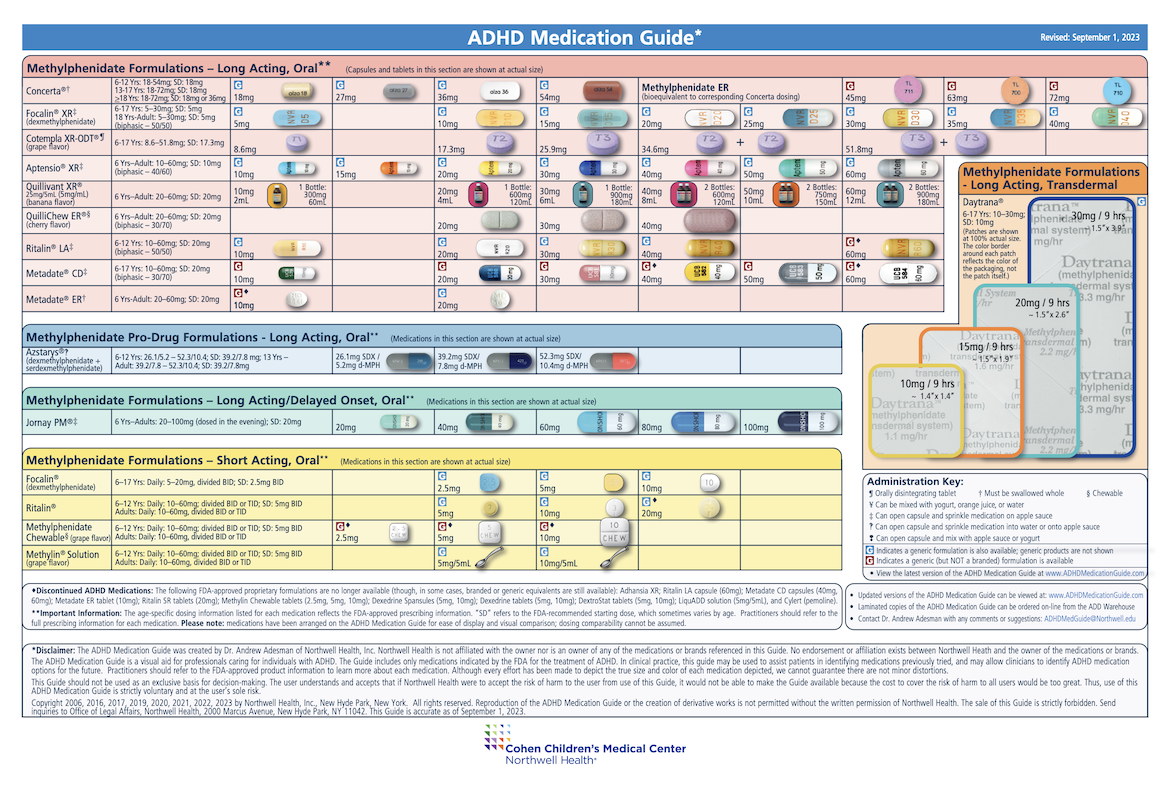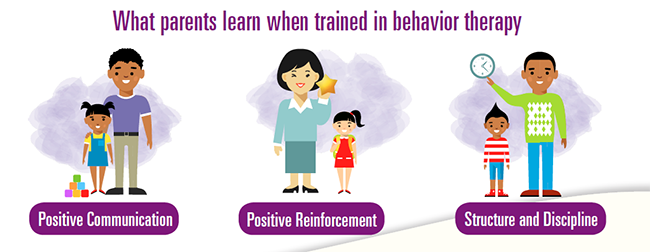Compassionate Depression Treatment to Enhance Mental Wellness
Compassionate Depression Treatment to Enhance Mental Wellness
Blog Article
Exploring Reliable ADHD Treatment Alternatives for All Ages
The intricacies of Focus Deficiency Hyperactivity Disorder (ADHD) present one-of-a-kind challenges across different age groups, necessitating a comprehensive exploration of effective therapy options. A mix of behavior treatments, medicinal treatments, and way of life alterations has actually shown pledge in addressing the diverse needs of people with ADHD.
Recognizing ADHD and Its Influence
Attention-Deficit/Hyperactivity Condition (ADHD) is a neurodevelopmental condition defined by relentless patterns of inattention, attention deficit disorder, and impulsivity that can significantly affect various facets of a person's life. It usually manifests in childhood, although signs and symptoms can continue into the adult years. The core signs of ADHD can disrupt instructional performance, prevent social communications, and complicate job-related ventures.
Individuals with ADHD commonly have a hard time with maintaining concentrate on tasks, arranging activities, and following via on directions, which can lead to scholastic underachievement (Depression Treatment). In social contexts, impulsivity may cause difficulties in creating and sustaining connections, as individuals might disrupt conversations or make rash decisions without taking into consideration repercussions
Additionally, ADHD can co-occur with other psychological wellness conditions, such as stress and anxiety and depression, additionally complicating diagnosis and therapy. The variability in sign discussion means that ADHD can impact individuals in different ways, necessitating an individualized approach to administration. Understanding ADHD's diverse effect is critical for developing efficient methods that sustain individuals in navigating daily obstacles and accomplishing their potential. Comprehensive understanding of ADHD's nature and implications prepares for discovering appropriate treatment choices customized to each person's demands.
Behavioral Therapies for ADHD
Countless behavior therapies have been developed to properly resolve the obstacles related to ADHD, focusing on modifying particular habits and promoting necessary skills. Among one of the most identified techniques are cognitive-behavioral treatment (CBT), parent training, and social skills training.
CBT assists individuals recognize and transform negative thought patterns and habits, promoting a more favorable outlook and boosted self-regulation. This therapy typically consists of functional techniques for managing impulsivity and enhancing organization. Moms and dad training programs empower caretakers by equipping them with strategies to strengthen favorable habits and established constant borders, which can be particularly advantageous for youngsters with ADHD.
Social skills training is an additional important part, teaching people with ADHD how to engage efficiently with peers - Depression Treatment. This technique frequently entails role-playing and feedback to improve interaction, teamwork, and conflict resolution abilities
Incorporating these behavior modifications into a thorough treatment strategy can significantly enhance operating and high quality of life for people with ADHD. Eventually, the effectiveness of these treatments depends upon customized strategies that think about the one-of-a-kind needs of everyone, consequently cultivating resilience and versatility in everyday life.
Drug Options Available
For several individuals with ADHD, medication can play a considerable function in taking care of symptoms and improving general performance. Both primary categories of medicines suggested for ADHD are energizers and non-stimulants.
Energizers, such as methylphenidate and amphetamine-based drugs, are one of the most commonly utilized treatments. These medications function by raising the degrees of natural chemicals, particularly dopamine and norepinephrine, in the brain, which assists enhance interest and minimize impulsivity and hyperactivity. They commonly generate quick outcomes, making them a recommended alternative for many patients.

It is important for health care providers to conduct an extensive analysis to establish one of the most ideal medication based on individual needs, case history, and potential side effects. Regular follow-up and monitoring are also essential to guarantee the efficiency of the selected treatment and to make any required adjustments.
Lifestyle Changes to Consider
Taking care of ADHD properly expands past my company medicine, as lifestyle changes can significantly enhance total health and sign control. Incorporating structured regimens is critical; constant routines help people with ADHD handle their time efficiently and decrease sensations of bewilder.
Routine exercise is another vital part. Exercise not just assists to enhance concentration but also enhances mood and reduces stress and anxiety degrees. Activities such as yoga exercise or team sporting activities can be especially useful, advertising both physical health and fitness and social interaction.
Nourishment likewise plays a crucial function. Depression Treatment. A balanced diet plan rich in omega-3 fats, whole grains, and lean healthy proteins can contribute to enhanced focus and cognitive function. Restricting sugar and processed foods is look at this now suggested, as these can worsen hyperactivity and impulsivity
Sleep health is essential for handling ADHD signs and symptoms. Establishing a routine rest timetable and creating a peaceful setting can enhance sleep high quality, bring about better attention and emotional law.
Alternative and Holistic Methods
Different and all natural approaches to ADHD treatment provide a diverse series of alternatives that enhance traditional methods. These methods often concentrate on lifestyle adjustments, dietary treatments, and restorative techniques that aim to improve overall well-being while dealing with ADHD signs.

Mindfulness and behavioral therapies are likewise getting grip as all natural interventions. Practices such as yoga, meditation, and cognitive-behavioral therapy can cultivate self-regulation and improve focus. These approaches sustain emotional resilience, which is especially helpful for people with ADHD.
Organic supplements, such as ginkgo biloba and ginseng, are sometimes explored; however, it is essential to seek advice from medical care specialists before incorporating these into treatment plans. While alternative and holistic approaches can supply useful support, they ought to ideally be used combined with evidence-based treatments to attain optimum outcomes for handling ADHD across all ages.
Final Thought
In summary, effective ADHD therapy demands a thorough strategy that consists of behavioral therapies, medication, way of living alterations, and alternative methods. Tailored treatments can dramatically boost individuals' functioning and quality of life, while ideal medicine guarantees optimal signs and symptom monitoring. Moreover, adopting organized regimens, taking part in reference regular exercise, and practicing mindfulness can improve psychological guideline and interest. This diverse strategy emphasizes the value of personalized treatment in attending to the diverse needs of people with ADHD across all age teams.
Report this page